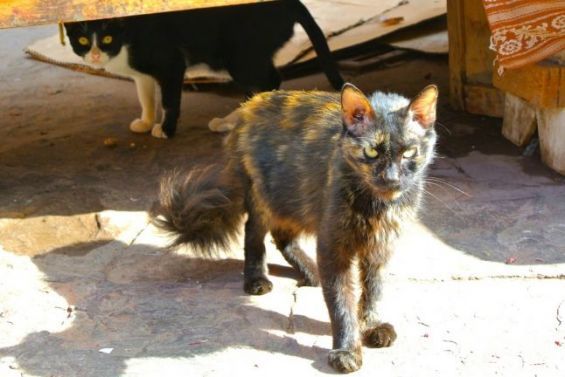In an unprecedented move, prosecution at the Safi court of first instance agreed on Monday, May 20, to accept a complaint filed by animal rescue association Comme Chiens et Chats against a man who burnt 40 stray cats.
The awful incident took place on May 3rd, when a woman who takes care of stray cats in her neighborhood stumbled upon a man who was training his dog to attack cats.
The woman intervened to prevent the man from hurting these animals. The woman’s intervention escalated into a fight that had a dramatic end as the man in question set fire in the cats’ hideout.
Denouncing the heinous act, Comme Chiens et Chats, established to help stray dogs and cats and find them a new home, assigned its lawyer Youssef Gharib to lodge a complaint in Safi against the person behind the fire.
A complaint to protect stray animals
«The complaint filed by the association contains facts», Gharib told Yabiladi on Thursday. «The prosecution took the complaint into account and ordered authorities to open an investigation», the lawyer added.
«Morocco’s penal code doesn’t make mention of stray animals that live in the streets», Gharib said, stressing that this «doesn’t mean that there is a legal vacuum». According to the lawyer, legal texts related to stray animals are deemed insufficient, unclear and sometimes vague.
To Gharib, Moroccan laws did not keep track of the international scene when it comes to the protection of animals. «There are some Middle Eastern countries, including Palestine and the United Arab Emirates, which have very advanced laws for the protection of animals», he explained, adding that the Kingdom «has to amend its laws».
Indeed, Article 601 from Morocco’s criminal code indicates that «poisoning working animals, horses or cattle, sheep, goats or other livestock, watchdogs or fish in ponds, or tanks» is subject to a punishment.
Meanwhile, Article 602 from the same document stressed that «killing or mutilating one of the animals mentioned in the previous article or any domestic animal, in the places, buildings, enclosures and outbuildings or on lands where the master of the killed or mutilated animal is the owner, tenant or farmer» can result in two to six months of imprisonment and a fine ranging from 200 to 250 dirhams.
Lawyer Yousef Gharib said that, together with the French association, they are trying to «hold the legal text, and to break this deadlock and to find amendments to protect these vulnerable animals».




 chargement...
chargement...












